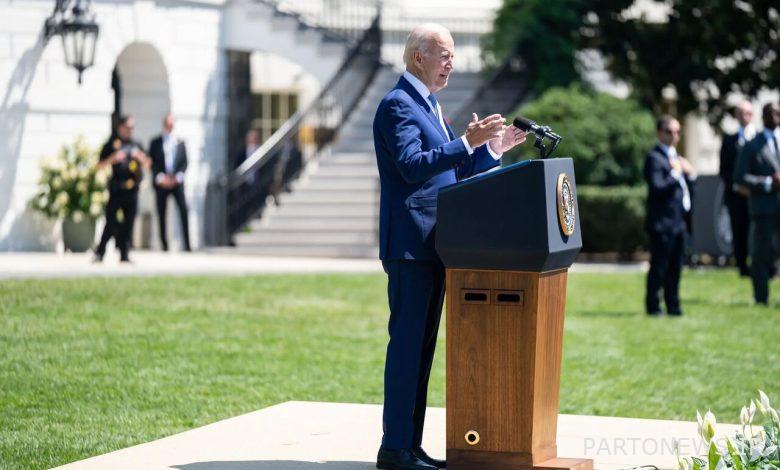The political dangers of the Middle East trip for Biden from the perspective of the New York Times

According to IRNA’s report on Wednesday, this American newspaper added. Biden’s four-day trip, which began on Tuesday (local time), aims to slow down Iran’s access to the nuclear program, accelerate the flow of oil to American pipelines, and change the shape of relations with Saudi Arabia.
All three of these efforts are fraught with political risks for a president who knows the region well, but returns to the Middle East for the first time in six years with much less leverage than he seeks to shape events in the region.
The newspaper claimed: Biden’s 18-month negotiations to restore the Iran nuclear deal in 2015 have stalled, and the diplomatic effort to force Tehran to remove more of the nuclear fuel it is using to enrich uranium to the level of a nuclear bomb has stalled. .
According to this newspaper, officials say that although an agreement to increase Saudi oil production is not expected to be announced, even if such an agreement is signed, it will take one to two months. There are concerns that such a possible agreement will be considered a reward for the Saudi crown prince and bring him back to the diplomatic ranks.
Due to the fact that Biden had previously promised to isolate Saudi Crown Prince Mohammed bin Salman due to the murder of Arab critic Jamal Khashoggi, US government officials have said that they are sure that if the president meets with bin Salman, there will be criticism in Their partisanship will be aroused.
Biden has often presented this period in history as a contest between democracy and tyranny, and banned Cuba and Venezuela from participating in the Summit of the Americas in Los Angeles because of their repressive actions. But he has justified the trip to Saudi Arabia as an exercise in realism.
When Biden came to power, he clearly said that he wanted to remove the American focus from the Middle East and focus on China. According to him, Washington has wasted 20 years when it should have focused on a real competitor.
The White House has argued for public consumption that Biden’s decision to travel to Riyadh is due to a series of national security issues and is not limited to oil, but oil is the most important reason for this trip at the same time as the increase in gasoline prices.
Current and former US officials say that due to the sensitivity of the issue of sacrificing human rights issues in exchange for obtaining cheap energy, the US President does not intend to announce any oil agreement during the stop in Riyadh, but the two sides have a common understanding. It has been reported that Saudi Arabia will increase production as soon as the current quota agreement expires in September, coinciding with the mid-term congressional election campaigns.
Martin Indik, a former Middle East diplomat under Presidents Bill Clinton and Barack Obama, said that the exact amount of Saudi oil production is still unknown, but Riyadh is expected to increase its production by about 750,000 barrels per day, and the United Arab Emirates It will follow suit and produce an additional 500,000 barrels per day, but how much this will reduce fuel prices in the US is unclear and may not be fast or deep enough to boost public sentiment ahead of the election. November will change.
Biden has tried to state that the purpose of his visit to Saudi Arabia is to meet with regional leaders from the Persian Gulf Cooperation Council and other leaders from Egypt, Iraq and Jordan, but White House officials have pointed to the fact that Biden cannot avoid meeting with the Saudi Crown Prince. Avoid and dropping the photo will have a destructive effect at least for Biden, but for the crown prince of Saudi Arabia, considering that he is looking to rebuild his international image, taking this photo will be valuable.
According to some analysts, this is enough for the Saudis.

